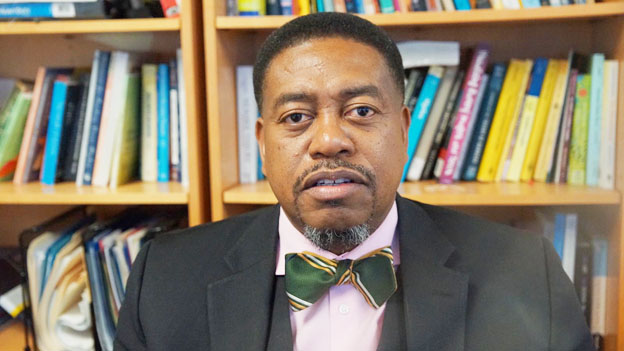A United States-based Guyanese college professor is advocating the establishment of a Ministry of Employment and Training Service (METS) in Guyana to help create a cadre of trained local personnel to respond to the needs of the country’s oil & gas sector and the wider Guyana economy.
Associate Professor of Mathematics at the Medgar Evers College in Brooklyn, New York, Dr Terrence Richard Blackman writes in an article published in the most recent edition of OilNow, a Guyanese-owned Information and Resource Centre that provides regular updates on developments in the country’s oil & gas sector, that such a ministry “will work with business and industry, particularly the emerging oil and gas sector, to build a trained and prepared workforce by providing employment and training services to Guyanese and Guyanese businesses.”
Professor Blackman envisages such a ministry operating “a countrywide online labor exchange system that would connect job seekers and employers in each of the 10 regions.” Specifically, he sees the ministry overseeing and administering “Job Centers across the country to assist job seekers with employment-related services.” Such Job Centers, he says, “would also support employers by providing outreach and recruitment services and providing information on pathways to employment for the general public.”
Dr Blackman also envisages a local METS providing specialised initiatives “aimed at integrating women, rural youth, and indigenous populations, into Guyana’s economic mainstream” and “developing approaches flexible enough to respond to emerging industries” and to “identify solutions for workforce issues on an ongoing basis.” Further, he anticipates that the ministry will “meet the needs of employers, communities and the nation.”
Asserting that preparing a qualified workforce is the essential function of the country’s educational system, Blackman writes that “tomorrow’s careers, particularly those in the emerging oil and gas sector will require advanced skills and more flexibility than ever.” Accordingly, he contends that policies must also “facilitate industry-driven training and educational programmes focused on providing Guyanese youth, women and Guyanese in rural areas [with] preparation for Guyanese jobs.”
And in order to meet the country’s workforce needs, Dr Blackman is recommending the adoption of a “three-tiered approach” that would include “amplifying and refining existing Secondary School programmes that connect youth with career pathways and help them prepare for the academic and other rigors that lead to workforce participation.” The Guyanese academic is also advocating that the country develop “academic certificate and degree programmes that prepare students, with particular emphasis on women, for careers in critical Guyanese employment sectors; and prioritizing professional development courses that provide continuing education targeted at rural youth and women.”
“We must be purposeful as we identify workforce development priorities through labor market information, institutional data, and industry feedback, to support and develop programs countrywide,” Dr Blackman writes.





